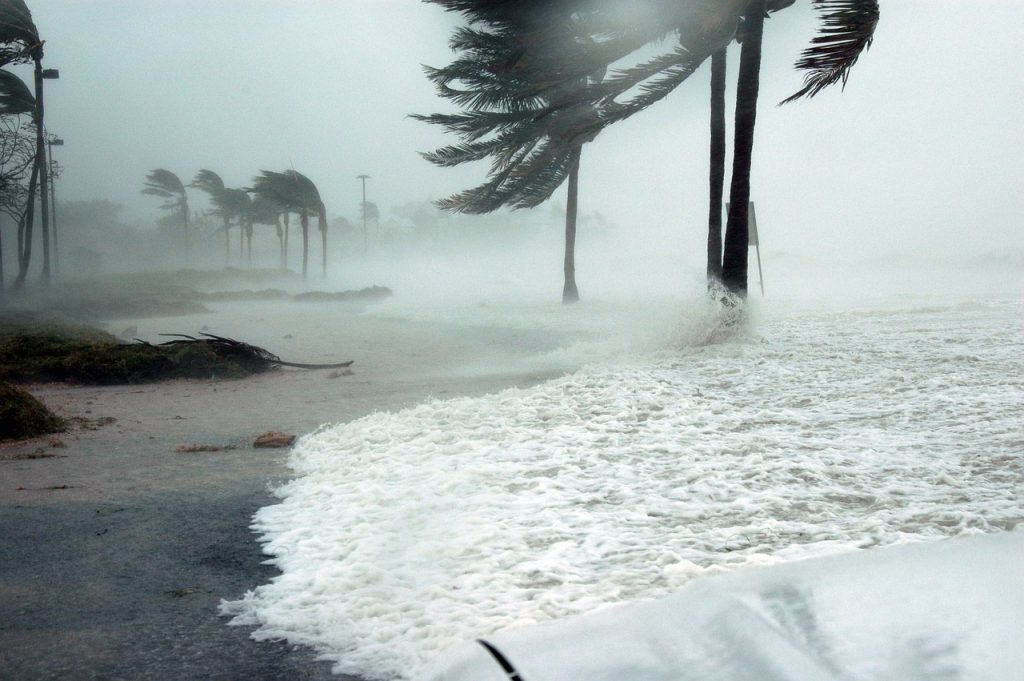How Bad Will Hurricane Season Be This Year?
The hurricane season storm predictions, made by Colorado State University's Department of Atmospheric Science, suggest a total of 18 named storms, including eight hurricanes and three major hurricanes.
This article is more than 2 years old

Hold onto your hats and batten down the hatches—the 2023 Atlantic hurricane season is on its way, and it’s looking like a wild ride! With warmer ocean temperatures and changing climate patterns, the potential for frequent and intense hurricanes has never been higher. As we gear up for the hurricane season, let’s take a closer look at what we can expect and how we can prepare for this natural phenomenon.
According to a recent article on ABC7NY, the 2023 Atlantic hurricane season is expected to be an active one with a higher-than-normal number of storms. The predictions, made by Colorado State University’s Department of Atmospheric Science, suggest a total of 18 named storms, including eight hurricanes and three major hurricanes. These predictions are based on various factors, including sea surface temperatures, wind patterns, and other climate variables.
Factors Affecting the Hurricane Season
Warm ocean waters are crucial for hurricane formation. Above-average ocean temperatures in the Atlantic increase the likelihood of more frequent and intense hurricanes. However, it’s important to note that other factors also play a role in hurricane development. For instance, wind patterns in the atmosphere can either inhibit or facilitate hurricane formation. Also, dry air, which can absorb moisture and prevent cloud formation, can hinder hurricane development.
Preparing for Hurricane Season
The best way to deal with hurricanes is to be prepared. Start by creating an emergency plan for you and your family. This should include details about evacuation routes, where to meet, and significant phone numbers. Stocking up on essential supplies like food, water, and medications is also important. In case of a power outage, it’s a good idea to have a backup generator or battery-operated lights and radio.
During a hurricane, staying indoors and away from windows is crucial. Follow any evacuation orders issued by local authorities and stay up-to-date with the latest news and information. If you live in an area prone to hurricanes, consider investing in hurricane shutters or impact-resistant windows. After the storm, be vigilant for potential hazards such as downed power lines or flooding. Avoid driving through flooded areas, and be cautious of any debris that may have been washed onto roads and highways.
Comparing Hurricane Seasons
It is impossible to predict the exact number and intensity of hurricanes in any given year. However, historical data can be used to compare hurricane seasons. For instance, the 2020 Atlantic hurricane season was one of the most active on record, with thirty named storms, thirteen hurricanes, and six major hurricanes. In contrast, the 2014 season had only eight named storms, six hurricanes, and two major hurricanes.
The Link Between Climate Change and Hurricanes
It’s worth noting that while individual hurricanes cannot be directly attributed to climate change, there is scientific evidence linking the two. For instance, climate change is causing warmer ocean temperatures, which can cause more frequent and powerful hurricanes. The Intergovernmental Panel on Climate Change (IPCC) has also concluded that human-induced climate change has “very likely” contributed to the increased frequency and intensity of hurricanes in recent decades. It is critical to remember that climate change is a complicated topic with several contributing aspects. Its impact on storms is just one of many possible consequences.





